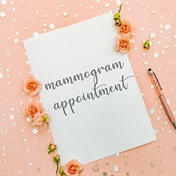
Although recommendations differ on when women should start getting screened for breast cancer, a new study suggests women in their 40s may benefit from yearly mammograms.
Researchers who reviewed 609 breast cancer deaths found about half occurred among women who were diagnosed when they were under 50 years old, and most of those women had never had a mammogram. "You should be (screening) about every year in your 40s," Dr Blake Cady, a professor emeritus of surgery at Harvard Medical School in Boston who worked on the study, told Reuters Health. That recommendation echoes screening guidelines from the American Cancer Society, which calls for yearly mammograms starting at age 40 for as long as a woman is in good health.
"The government-backed US Preventive Services Task Force (USPSTF), however, recommends women at average risk for breast cancer get screened every other year starting at 50 and says younger women should make their own decision on whether to be screened. "For women 40 to 49 we know there is some benefit," said Dr Virginia Moyer, who chairs the USPSTF and was not involved in the new study. "The benefit is relatively modest and whenever there is modest benefit you really have to look at the downside," said Moyer, who is also the vice president for maintenance of certification and quality at the American Board of Paediatrics in Chapel Hill, North Carolina.
In the case of breast cancer screening, the downsides include false positives, which can put women through emotional and physical stress and lead to additional invasive tests. Most screening recommendations are based on analyses of several randomised controlled trials, which are considered the gold standard of medical research and follow groups of screened and unscreened people over long periods of time.
Failure analysis
Cady and his colleagues write in the journal Cancer that those analyses may downplay the actual benefit of screening, because – for example – people in the groups who are told not to get screening may get screened anyway. For their study, the researchers did a so-called failure analysis on data from the medical records of 609 women who died of breast cancer. The women were diagnosed between 1990 and 1999 at one of two Boston hospitals, and they died by 2007.
A failure analysis, according to Cady, is similar
to what aviation officials do when evaluating a plane's black box to determine
what went wrong before a crash. The researchers found that of the 609 breast
cancer deaths, 29% occurred among women who had a mammogram within two years of
their diagnosis and 71% were among women who were not screened. Only about 13% of deaths occurred among women who were more than 70 years old when
they were diagnosed. About half occurred among women younger than 50 at
diagnosis. Of all the deaths, 30% happened in women who were diagnosed between
40 and 49, and 20% happened in women diagnosed before age 40, Cady
said.
Previous research has found that about 30 of every 1000 40-year-olds will
die from the disease in the absence of screening. In an interview with Reuters
Health in 2011, Dr Michael LeFevre of the University of Missouri, who co-chairs
the USPSTF, said that if screening is started at 50 and done every two years
until the women hit 75, seven of those deaths would be prevented. Starting at
age 40 instead would prevent one additional death, he said.
Findings unsurprising
The new findings "are somewhat unsurprising
that in essentially if you look backwards in a highly selected population you
can find a lot of things and knowing how to interpret them is nearly
impossible," Moyer said. Just under 2% of 30-year-old women will develop
breast cancer by age 50, according to the US Centres for Disease Control and
Prevention.
Cady said the controversy over when to begin screening for breast cancer will not be solved by the new study, "but at least it provides some points of reference. Women should discuss the issue with their doctors. They should consider the variety of recommendations that are made... there are all sorts of points in this controversy and discussion that are legitimate points of arguments," he said.
(Picture: patient undergoing mammogram from Shutterstock)




 Publications
Publications
 Partners
Partners















